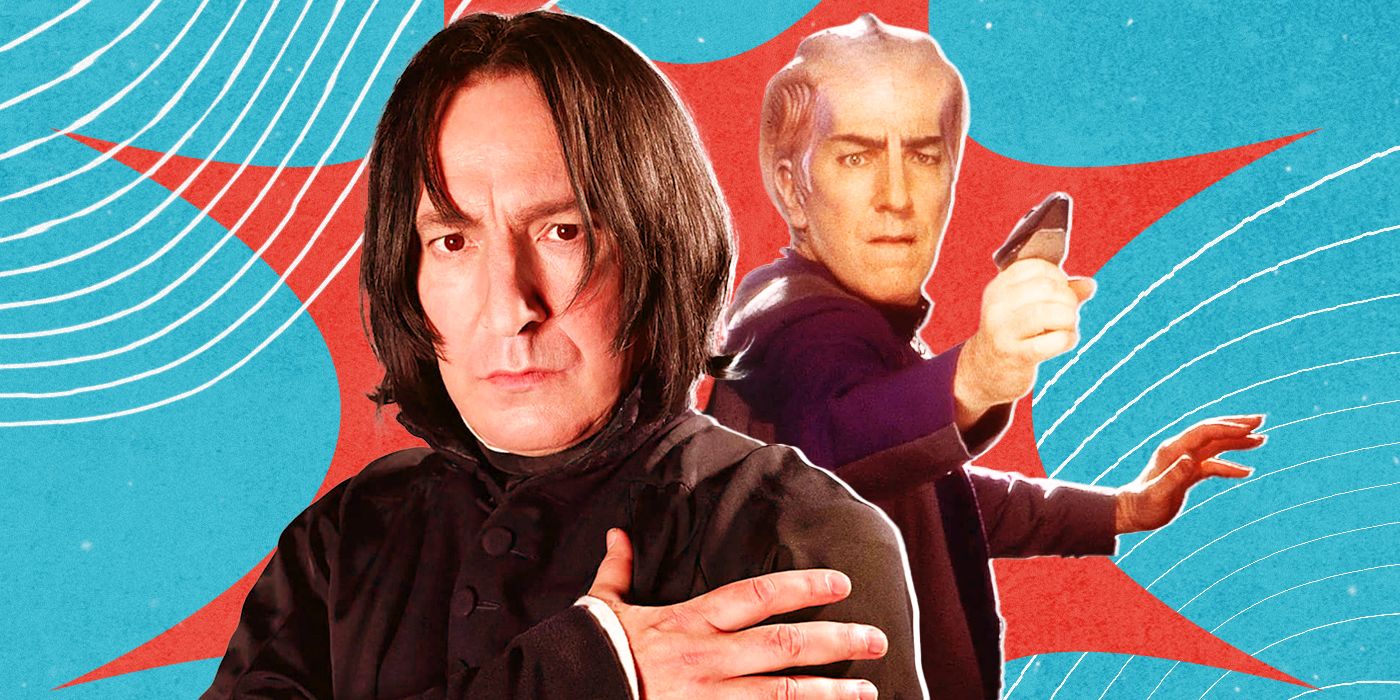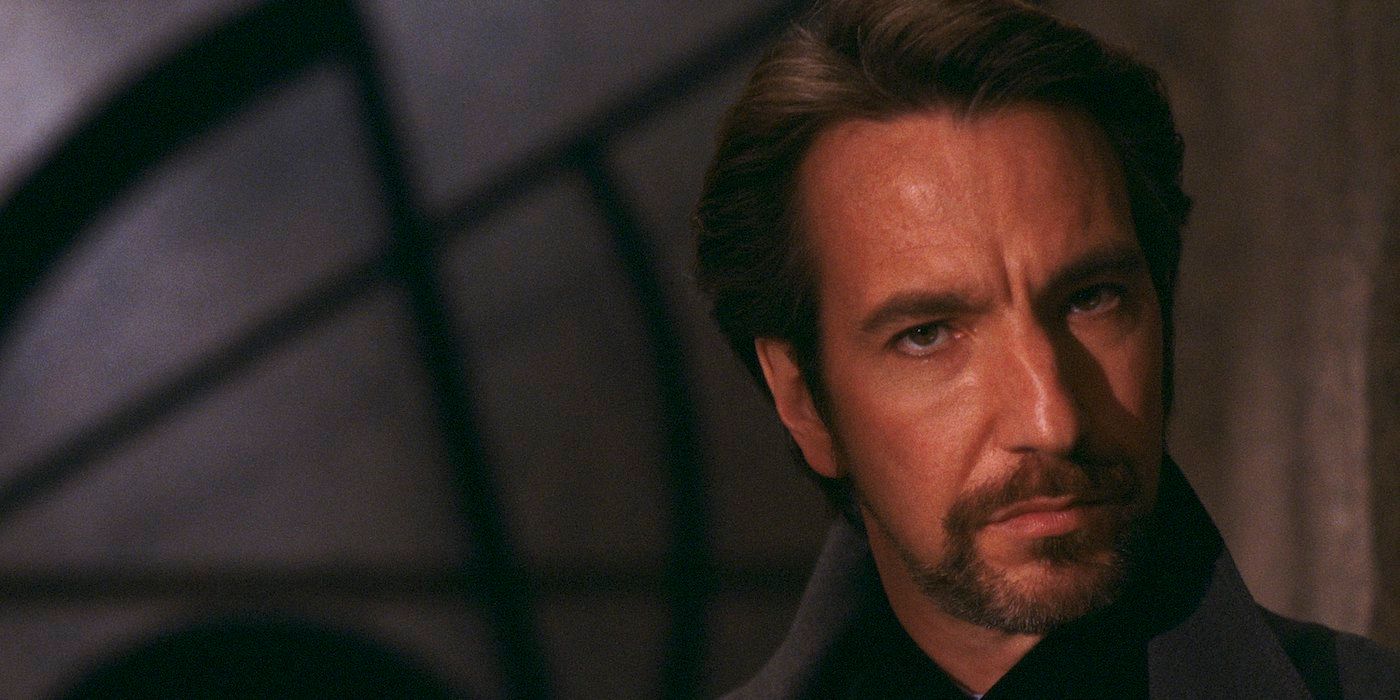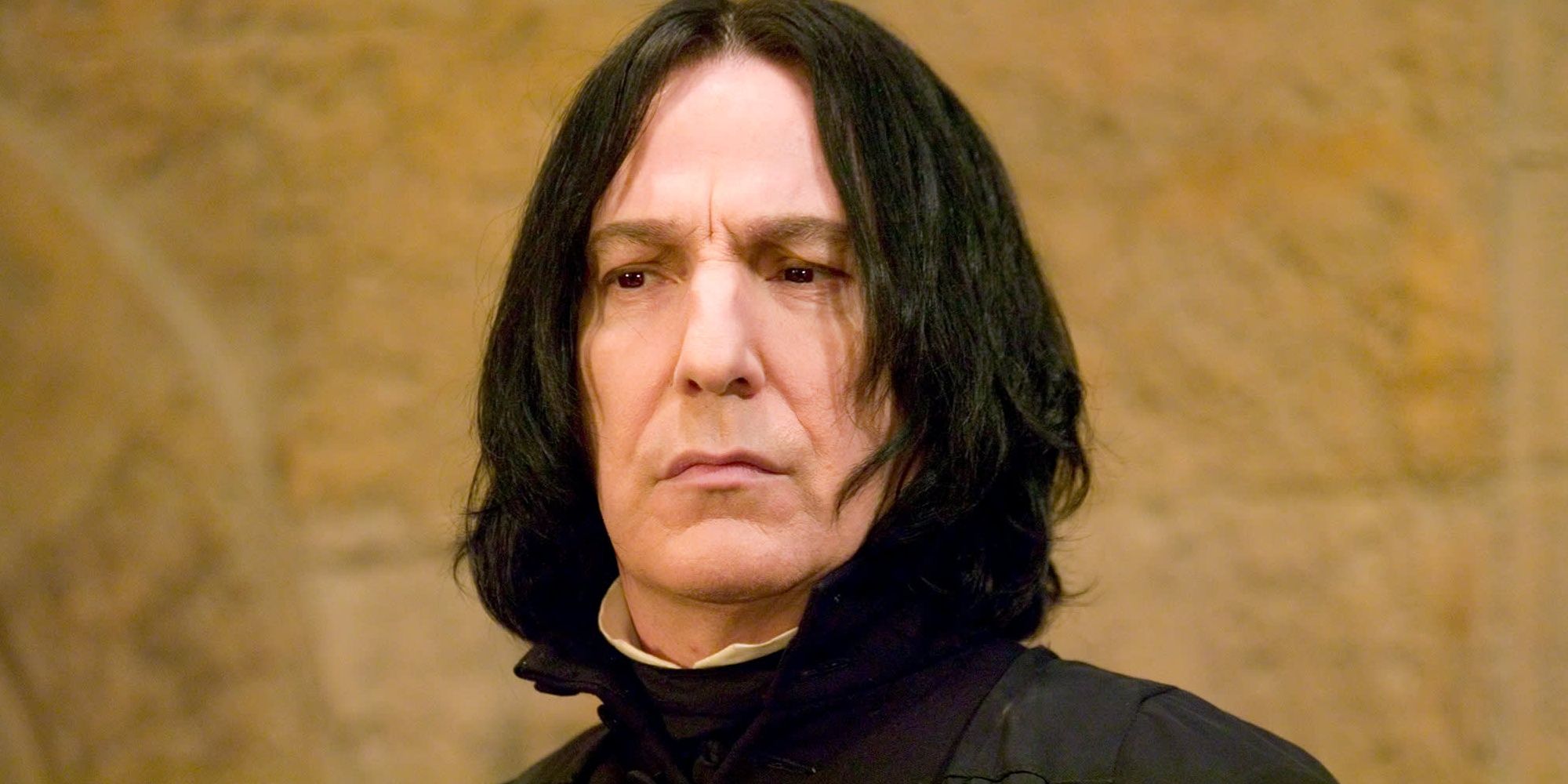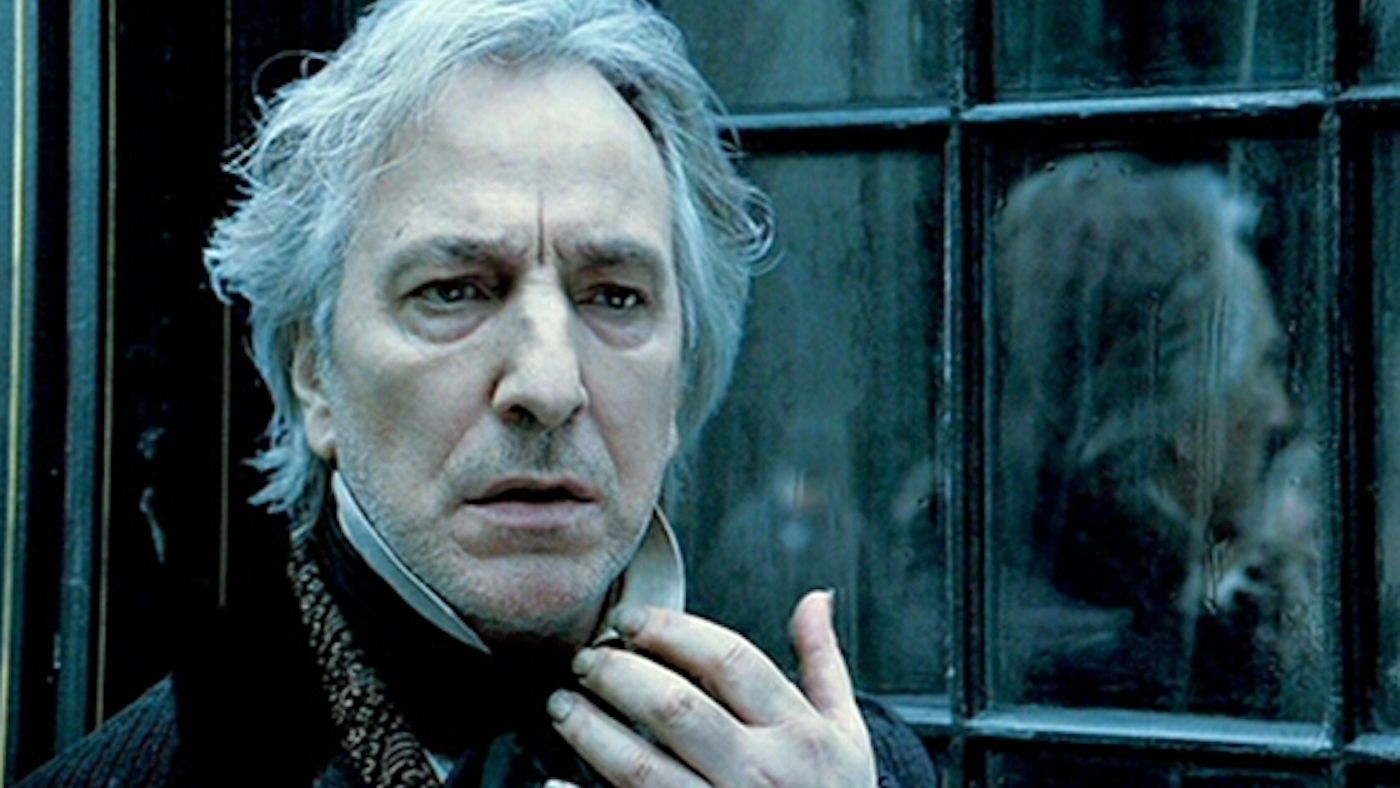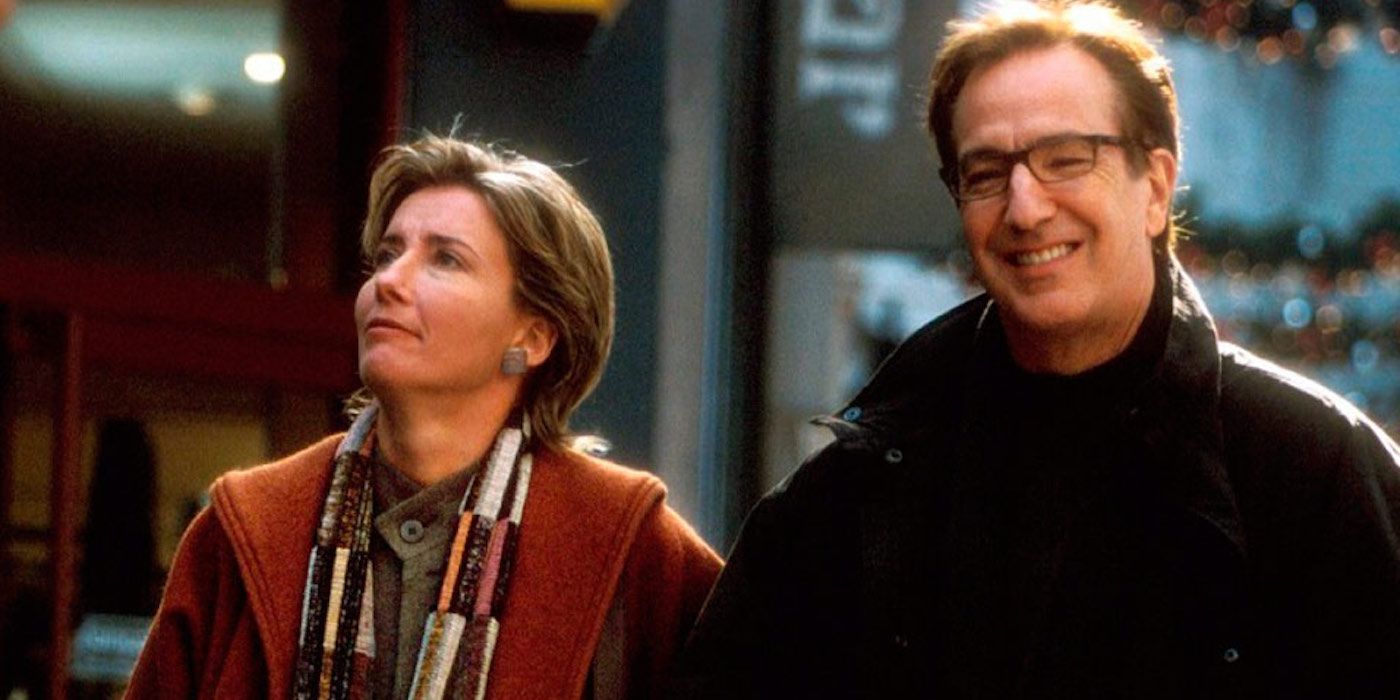Alan Rickman was a great actor, a statement which is undeniably true. He excelled in the characters he played, and more often than not he elevated the material simply by appearing in the film. And if that character was a villain, as was often the case, Rickman owned it. Hans Gruber. The Sheriff of Nottingham. Judge Turpin. Severus Snape. All these villains were made iconic by the prolific actor. But what is it about his performances that made him so good at being so bad?
Generally speaking, there’s an air of arrogance about Rickman in his villainous roles, a sense that he’s above all the other characters in the film. This is a very obvious facet he could turn on and off, as Rickman was often noted for his wonderful offscreen presence. It's easy to see in Die Hard, where his Hans Gruber downplays John McClane (Bruce Willis) as nothing more than an irritant (a deadly irritant, but one nonetheless), unable to halt his plan, which includes his smug knowledge of FBI procedure that falls right into it. And he holds that arrogance right to the end, pulling out a gun on McClane in a final, bitter refusal to admit defeat.
An Air of Arrogance
Rickman would satirize that arrogance to a degree in Galaxy Quest. Although his Sir Alexander Dane wasn’t a villain in that film, his actions, his line delivery, and his resignation made it clear just how much he believed that he should be remembered and acknowledged for far more than having played the alien Dr. Lazarus in a juvenile, silly piece of sci-fi nonsense, doomed to relive the role at fan conventions for time eternal (somewhat unrelated, it's also a brilliant send-up of Leonard Nimoy's love/hate relationship with his role as Dr. Spock).
A tricky talent that he expertly managed was his ability to fill the space with what was given to his character, in both screen time and emotion. In the Harry Potter series of films, It would have been incredibly easy for him to chew up the scenery as Severus Snape, making him larger than life, but that would have been completely inappropriate for the role and, more importantly, would overstep the boundaries of his supporting role. At the other end of the scale, Rickman’s Sheriff of Nottingham from 1991's Robin Hood: Prince of Thieves allowed for scene-chewing and outlandish behavior, and in the screen time given he runs with it, fills that space to make what could have been a throwaway role into something more, gifting us with "Locksley, I'll cut your heart out with a spoon" (because it's dull and will hurt more, of course).
Rickman Doesn't Need Words to Be Bad
Another of Rickman’s strengths was his balance of verbal and non-verbal cues to deepen the character. Perhaps the best example of this is in the Harry Potter films. Throughout the series, his line delivery is dripping with contempt and deliberateness, with Snape's "Hello, Potter" still able to send chills down one's spine. His stone face belies little, leading the viewer to believe him to be villainous, to believe his loyalities lie with Lord Voldemort (Ralph Fiennes). Yet as he lay dying in Harry Potter and the Deathly Hallows - Part 2, everything in his face says so much: the pain of lost love, the heartache, his torn attachment to Harry. All of it done without speaking a single word. The real magic, if you will, of that performance is how it then changes one's perception of the character's actions in the preceding films. It's been told that author J.K. Rowling gave Rickman just a hint of the endgame for Snape early on in filming the series, making the performance just that much more layered and impressive.
Likable Villains
Yet even with all of this, his villains are likable. Twistedly so, but still somewhat likable. You can't full-on hate the Sheriff. You can't absolutely detest Gruber. There is a charisma that shines through, which leads to another element that Rickman brought to the game: his ability to turn it off. There are some actors, say Tom Cruise or Arnold Schwarzenegger, whose natural charisma prevails over every character they play, so it isn't a trait that's necessarily easy to master. But take Rickman as Judge Turpin in 2007's Sweeney Todd: The Demon Barber of Fleet Street, the nasty that gets Johnny Depp's barber Benjamin Barker exiled, eventually leading to Barker becoming the murderous Sweeney Todd. Extreme? Maybe, but Turpin did rape his wife, drove her to commit suicide, and is preparing to marry Barker's daughter. In essence, Turpin is the catalyst for the lies and murders that befall London's Fleet Street, and as such he can't be seen by the audience as someone that could become good. So Rickman simply shuts it down, and for an actor who is so naturally captivating to play a character so reviled is a testament to his talent (bonus talent: the man could sing, showcased as a duet on the song "Pretty Women" with Depp).
Real-life Villains
Rickman's Harry in Love Actually is another character where he turns off the charisma. His flirting and innuendo-filled talk with Mia (Heike Makatsch), one of his employees, leads to an affair that's discovered when his wife, Karen (Emma Thompson), finds a gift-wrapped gold necklace that is very clearly not for her. This is followed by one of cinema's most heartbreaking scenes to Joni Mitchell's "Both Sides Now." At Christmas, no less! He utterly destroys Karen's heart and leaves their marriage in shambles. But damned if Rickman doesn't turn it around to do something even more impressive: he imbues Harry with a sense of realness and empathy. Karen and Harry's reunion in the film's epilogue shows two people trying to make things work, despite everything. It's down to Thompson's stellar acting and Rickman's making of Harry as a flawed, detestable but ultimately human character.
So does all of that answer the question of what made Rickman so good at being bad? In a roundabout way, yes: these are the elements that he not only could add to a character, but elements he could vary from character to character, scene to scene. The short answer, though, is deceptively simple. The way Rickman used those elements was adapted to what was needed to make the specific movie successful. The movie, not himself. Every villainous performance Rickman gave ultimately was to better the film and those in the film with him. It is a subtle but important difference that highlights the selflessness of the man and the grace and integrity he brought to the profession.

